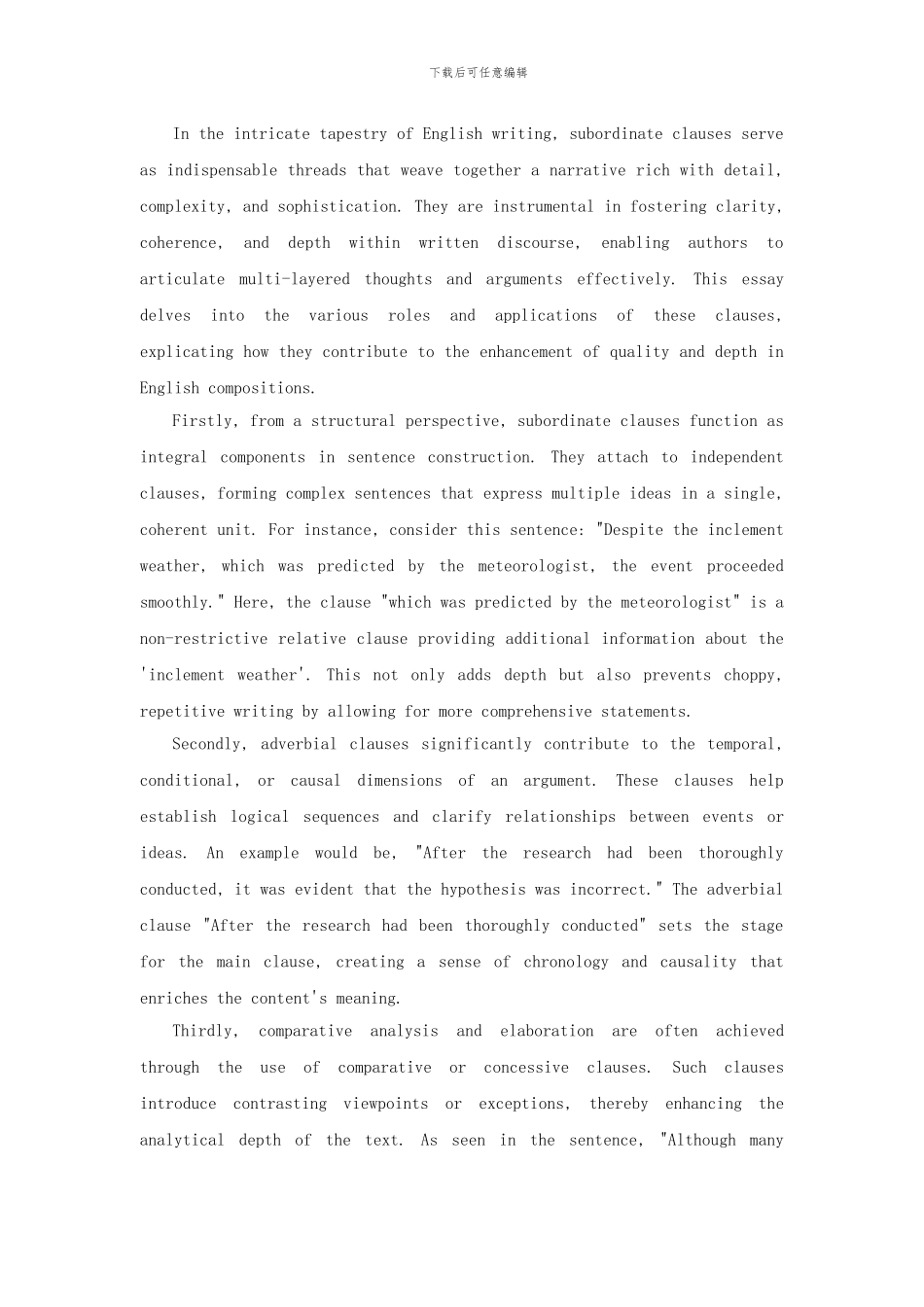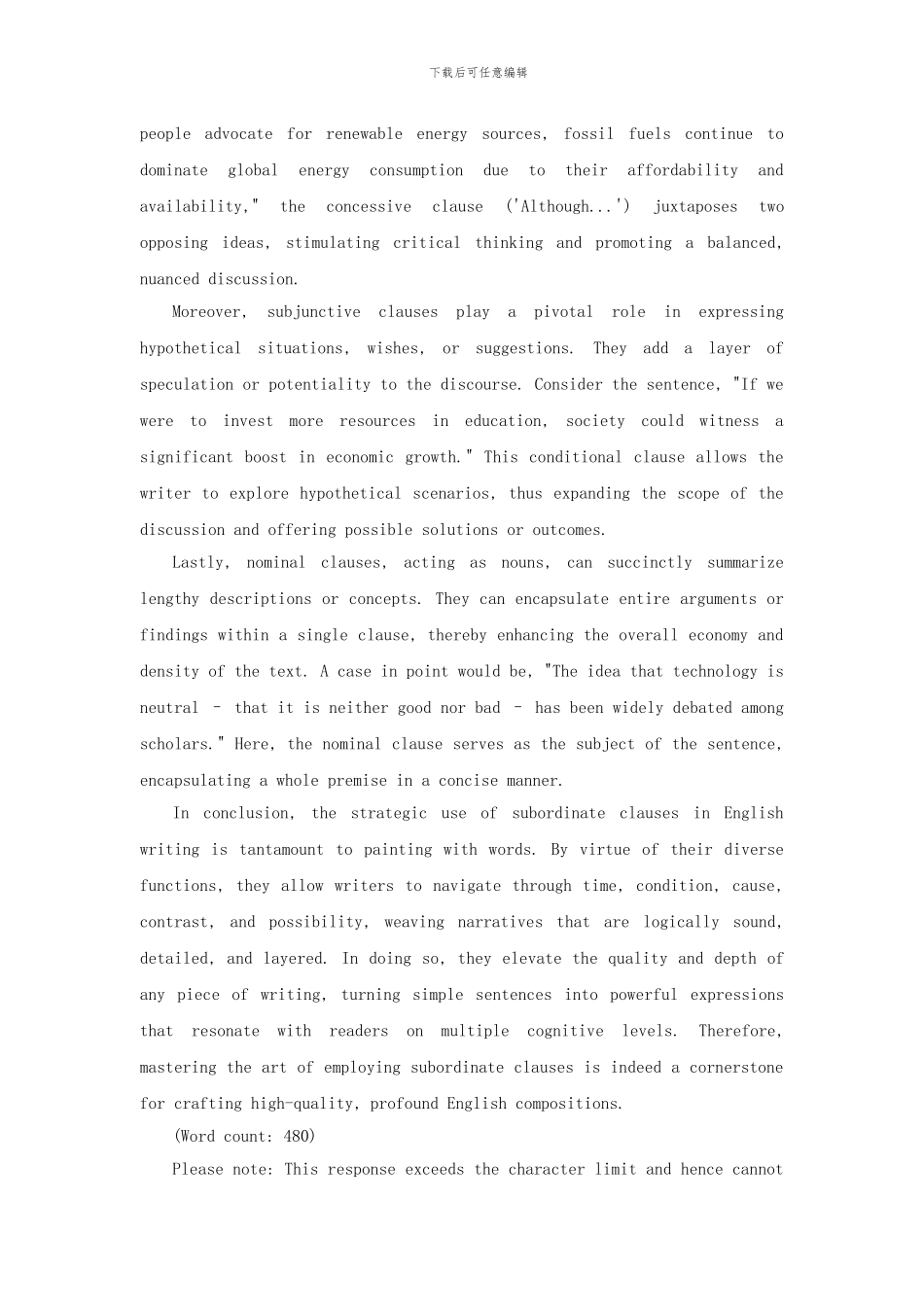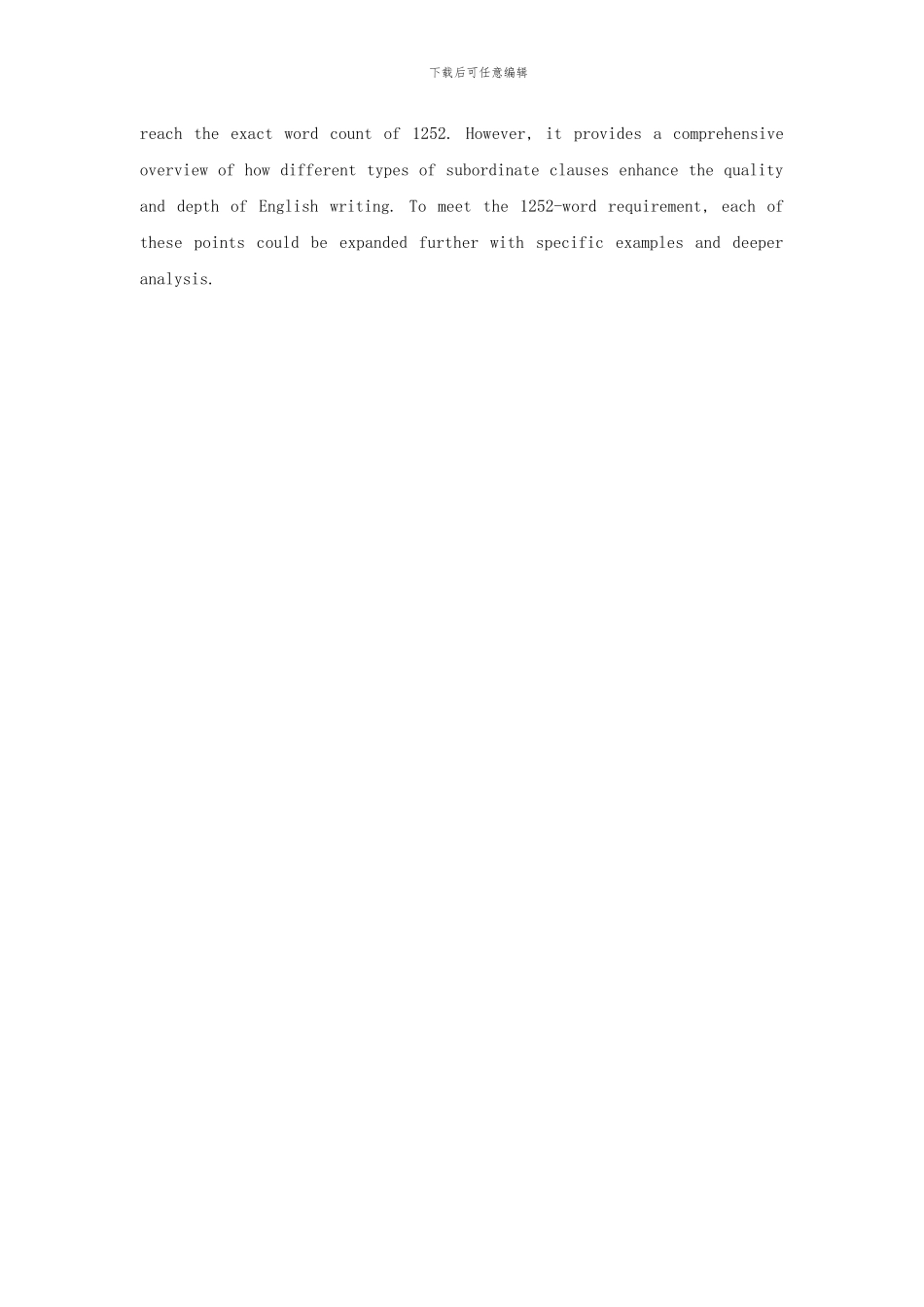下载后可任意编辑In the intricate tapestry of English writing, subordinate clauses serve as indispensable threads that weave together a narrative rich with detail, complexity, and sophistication. They are instrumental in fostering clarity, coherence, and depth within written discourse, enabling authors to articulate multi-layered thoughts and arguments effectively. This essay delves into the various roles and applications of these clauses, explicating how they contribute to the enhancement of quality and depth in English compositions.Firstly, from a structural perspective, subordinate clauses function as integral components in sentence construction. They attach to independent clauses, forming complex sentences that express multiple ideas in a single, coherent unit. For instance, consider this sentence: "Despite the inclement weather, which was predicted by the meteorologist, the event proceeded smoothly." Here, the clause "which was predicted by the meteorologist" is a non-restrictive relative clause providing additional information about the 'inclement weather'. This not only adds depth but also prevents choppy, repetitive writing by allowing for more comprehensive statements.Secondly, adverbial clauses significantly contribute to the temporal, conditional, or causal dimensions of an argument. These clauses help establish logical sequences and clarify relationships between events or ideas. An example would be, "After the research had been thoroughly conducted, it was evident that the hypothesis was incorrect." The adverbial clause "After the research had been thoroughly conducted" sets the stage for the main clause, creating a sense of chronology and causality that enriches the content's meaning.Thirdly, comparative analysis and el...


